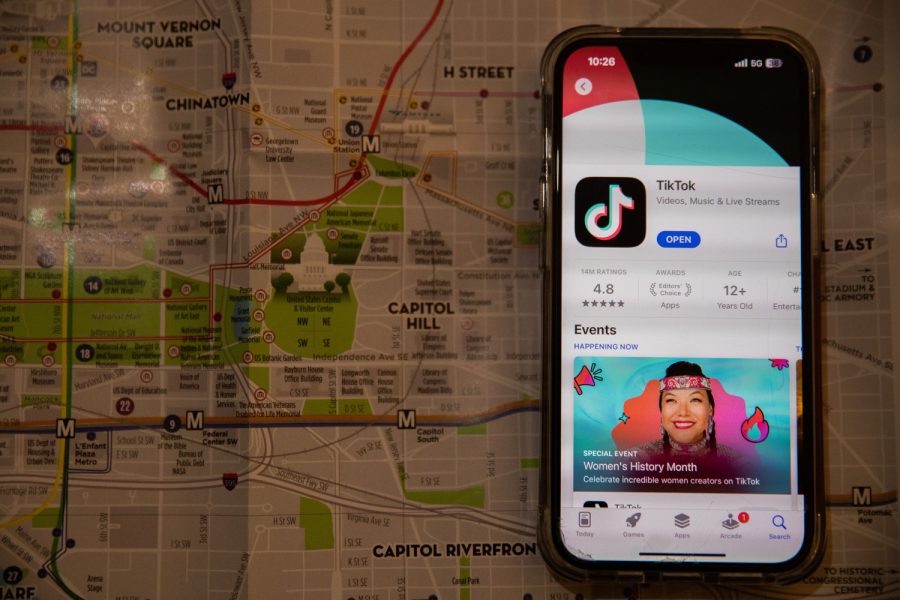Opinion | The incentives are wrong for TikTok bans
The proposal to ban TikTok would not solve the problem of online privacy.
Photo illustration by Emily Nyberg
April 16, 2023
As a viewer watching the congressional hearings with the CEO of TikTok, it was clear that Congress does not understand the internet, much less TikTok.
Instead of banning the app, there are better approaches to privacy concerns. Lawmakers should make new privacy laws to promote online safety and digital privacy for Americans.
In the U.S., companies and organizations have the right to collect the data of users on websites and social media like Facebook, Twitter, TikTok, and others and share it with anybody who is willing to pay for it.
Unlike the European Union or the U.K., digital privacy laws in America are almost nonexistent.
The fact lawmakers are targeting TikTok instead of focusing on digital privacy leads one to the conclusion that this is all just to score political points on China.
Currently, there are several proposals circling around Congress that could give President Joe Biden the authority to ban TikTok. The RESTRICT Act is a controversial proposal that would allow the federal government to ban technologies of foreign governments like China and Russia.
As relations between the U.S. and China reach historic lows and hostilities rise, targeting an app housed in Beijing seems like an easy win.
There are some legitimate reasons to be skeptical of TikTok and its ties to the Chinese Communist Party. Despite any claims to the contrary by TikTok’s CEO, the app is entirely beholden to the laws that govern China. One of the laws of concern is that if the government were to request any information about the users of apps housed on the Chinese mainland, they are required to surrender to Chinese authorities, or they will face legal consequences.
There are also concerns about how the app can proliferate anti-western propaganda and disseminate misinformation for the sole purpose of creating chaos.
But the misinformation problem is found among all social media platforms. If the argument is that we must ban TikTok because it spreads fake news, then we should ban Facebook, Twitter, and all other social media platforms.
If TikTok gets banned, it would be a blessing to stocks that have been on a downward trend since last year, such as Meta and Snap.
Meta paid Republican firms to run anti-TikTok campaigns that would have banned the app. Less competition leads to less innovation, and removing TikTok would leave less competition in the social media industry.
Setting all this aside, the ban has slimmer chances of surviving legal challenges. The first amendment barriers would be hard to overcome for the Biden Administration if they were to argue that we need to ban TikTok, a platform used for free speech by over a billion people.
Instead of wasting time and resources on banning an app that specializes in dancing cat videos, lawmakers would be better served trying to protect our digital privacy.
If TikTok was banned, there are different ways China can use intelligence to retrieve data on American users from other social media sites. New privacy laws benefitting all Americans are needed, not just those targeting a singular app because it’s politically convenient.
Columns reflect the opinions of the authors and are not necessarily those of the Editorial Board, The Daily Iowan, or other organizations in which the author may be involved.



